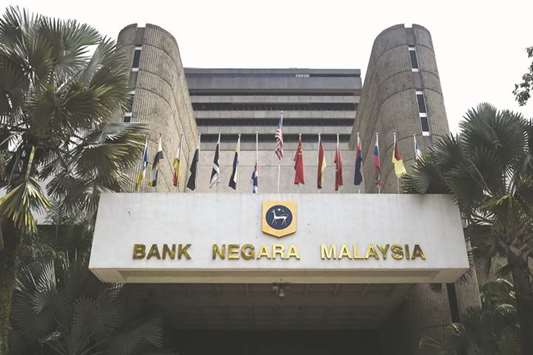Malaysia’s inflation eased more than forecast in October, but not enough for economists to change their views that the central bank may raise interest rates as early as January.
Key details: Consumer prices rose 3.7% in October from year ago, lower than all 16 forecasts from economists surveyed by Bloomberg. Transport costs led gains at 12.1%, followed by food and beverages at 4.4%. Core inflation slowed to 2.3% from 2.4% in September. Inflation was 4% in January to October. The central bank forecast inflation to average 3% to 4% in 2017.
The background: Malaysia’s central bank this month became the first in Southeast Asia to signal borrowing costs may start to rise as the economy booms. Governor Muhammad Ibrahim has said any adjustment would be a “normalisation” rather than a tightening.
Economic expansion, inflation and risks of financial imbalances are factors that influence the monetary authority’s policy decisions. Interest rates, after adjusting for inflation, have been negative for almost a year and if “it’s too long, it will be a concern,” Muhammad said on November 17.
A recovery in exports and strong growth in private consumption saw Malaysia’s economy expanding 6.2% last quarter, the fastest pace since 2014.
Economist takeaways: “This is unlikely, in our opinion, to dissuade BNM from normalising monetary policy from an accommodative stance, which we believe is more intended to address financial-imbalance risks,” said Euben Paracuelles and Brian Tan, economists at Nomura Holdings in Singapore. “However, stable core inflation may suggest there is little need for a more aggressive rate hiking cycle. We reiterate our forecast for just one 25- basis point rate hike in January 2018.”
“We believe that the current growth-inflation mix makes a strong case for policy tightening,” Australia & New Zealand Banking Group economists Shashank Mendiratta and Sanjay Mathur wrote in a report.
They expect the central bank to raise the policy rate by 25 basis points starting in January, and again in the third quarter. “We believe core inflation is likely to inch up in coming months,” they wrote. United Overseas Bank expects a 25-basis point increase next year, while not ruling out the possibility of two rate hikes if growth remains strong at a minimum range of 5% to 5.5%, senior economist Julia Goh wrote in a report. “We believe markets have only priced in one rate hike at this juncture. Higher odds for two rate hikes will fuel the ringgit further,” she said.

The headquarters of Bank Negara Malaysia in Kuala Lumpur. Malaysia’s inflation eased more than forecast in October, but not enough for economists to change their views that the central bank may raise interest rates as early as January.
